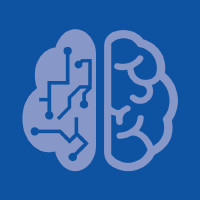Topic Menu
► Topic MenuTopic Editors


Urban Computing—Data, Techniques, Tools, and Applications
Topic Information
Dear Colleagues,
Since the term “urban computing” was first introduced, the field has continued to evolve and grow. In particular, new sources of data and advances in technologies to process this data mean that the role of urban computing in shaping our cities has intensified. Urban computing is a combination of computer science with other urban fields such as urban planning, design, sociology, transportation, environmental science, history, geography, and cultural studies. Urban computing strives to generate data-driven frameworks to help us analyse and understand urban processes and to solve urban challenges.
The availability of urban data has increased dramatically in the last decade, which has led to greater impact for urban computing. The descriptive power of the data is potentially magnified, albeit with additional challenges, when big data sources are included in urban computing frameworks. These data are collected using various methods by different devices, formats, standards, and tools which need new data infrastructures and methods to address urban challenges. In parallel with the increased supply of data and ever-increasing technological infrastructure, new tools and techniques have emerged to support urban computing. It is now common to find changes in computational tools used within urban computation tools, including (open-source) software, heterogeneous architectures and resources, data storage (cloud), and computational methods. The power of urban computing is seen in the variety of applications which are used by different actors, including governmental, public, and private sectors as well as researchers and citizens.
The focus of this Topical Collection is on data, techniques, tools, and applications of urban computing to identify, analyse, understand, highlight, and simplify urban complexities, solve wicked urban problems, promote participatory planning, and improve the quality of life in cities through digital technologies. Topics of interest include, but are not limited to, the following:
- Urban big data and text analytics;
- Smart mobility and smart environments;
- Spatial decision support systems and urban dashboards;
- Acquisition and processing of high resolution remotely sensed data (Lidar, image, etc.) for urban applications;
- Location-based service in smart cities;
- (Location) privacy and blockchain technology in smart city;
- Internet of things and sensor networks for smart cities and mobility;
- Computational social science;
- Data acquisition, storage, management, analysis, sharing;
- Geovisualisation and geosimulation of urban dynamics;
- 3D geovisualisation;
- Agent-based simulation for urban dynamics;
- Urban sensor network data and applications;
- Augmented reality (AR), extended reality (ER), and virtual reality (VR) for urban applications.
Dr. Gavin McArdle
Prof. Dr. Mir Abolfazl Mostafavi
Dr. Hamidreza Rabiei-Dastjerdi
Topic Editors
Participating Journals
| Journal Name | Impact Factor | CiteScore | Launched Year | First Decision (median) | APC |
|---|---|---|---|---|---|

Big Data and Cognitive Computing
|
4.4 | 9.8 | 2017 | 24.5 Days | CHF 1800 |

Land
|
3.2 | 5.9 | 2012 | 16 Days | CHF 2600 |

Remote Sensing
|
4.1 | 8.6 | 2009 | 24.9 Days | CHF 2700 |

Smart Cities
|
5.5 | 14.7 | 2018 | 26.8 Days | CHF 2000 |

Sustainability
|
3.3 | 7.7 | 2009 | 19.3 Days | CHF 2400 |

Preprints.org is a multidisciplinary platform offering a preprint service designed to facilitate the early sharing of your research. It supports and empowers your research journey from the very beginning.
MDPI Topics is collaborating with Preprints.org and has established a direct connection between MDPI journals and the platform. Authors are encouraged to take advantage of this opportunity by posting their preprints at Preprints.org prior to publication:
- Share your research immediately: disseminate your ideas prior to publication and establish priority for your work.
- Safeguard your intellectual contribution: Protect your ideas with a time-stamped preprint that serves as proof of your research timeline.
- Boost visibility and impact: Increase the reach and influence of your research by making it accessible to a global audience.
- Gain early feedback: Receive valuable input and insights from peers before submitting to a journal.
- Ensure broad indexing: Web of Science (Preprint Citation Index), Google Scholar, Crossref, SHARE, PrePubMed, Scilit and Europe PMC.


